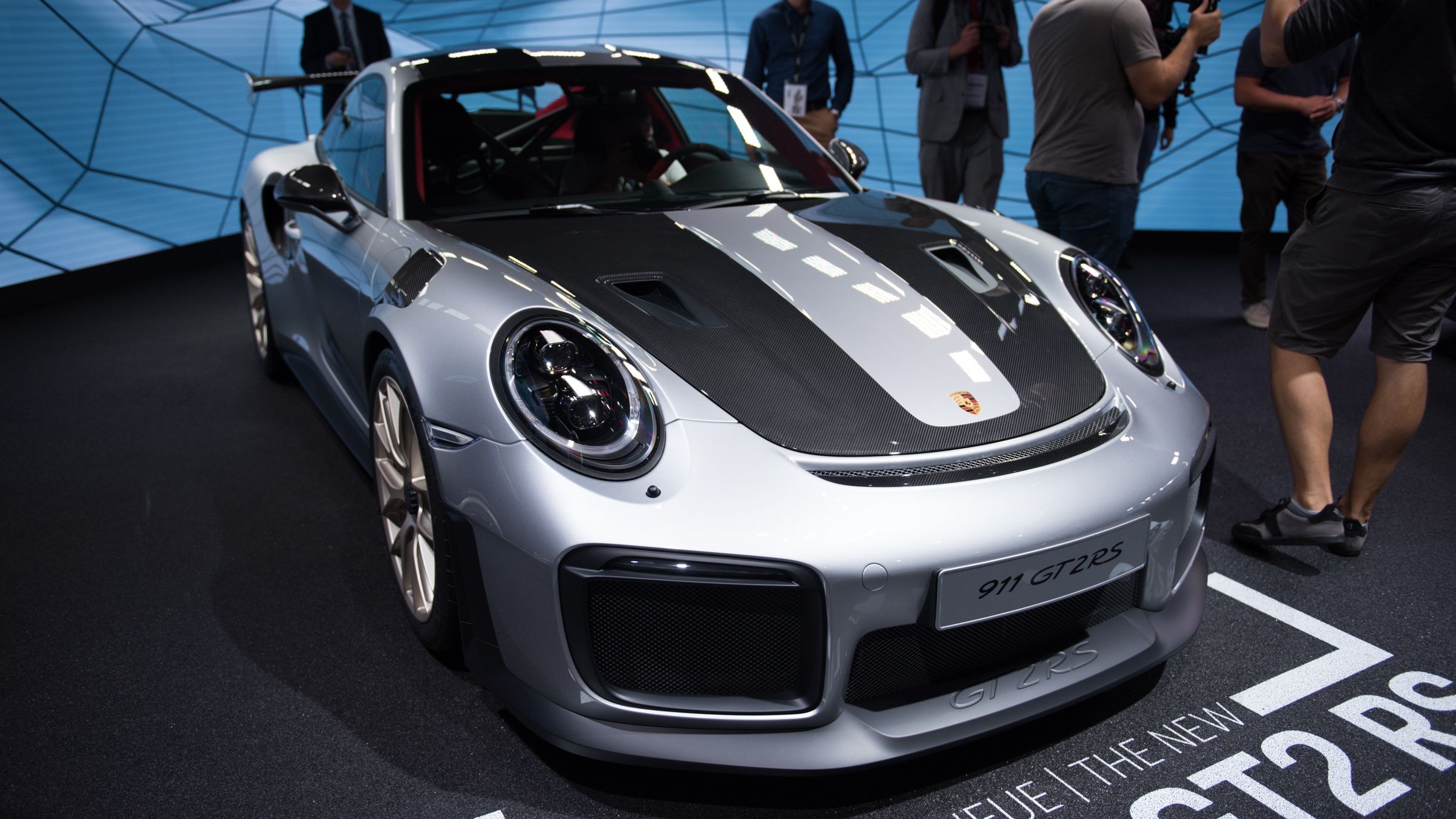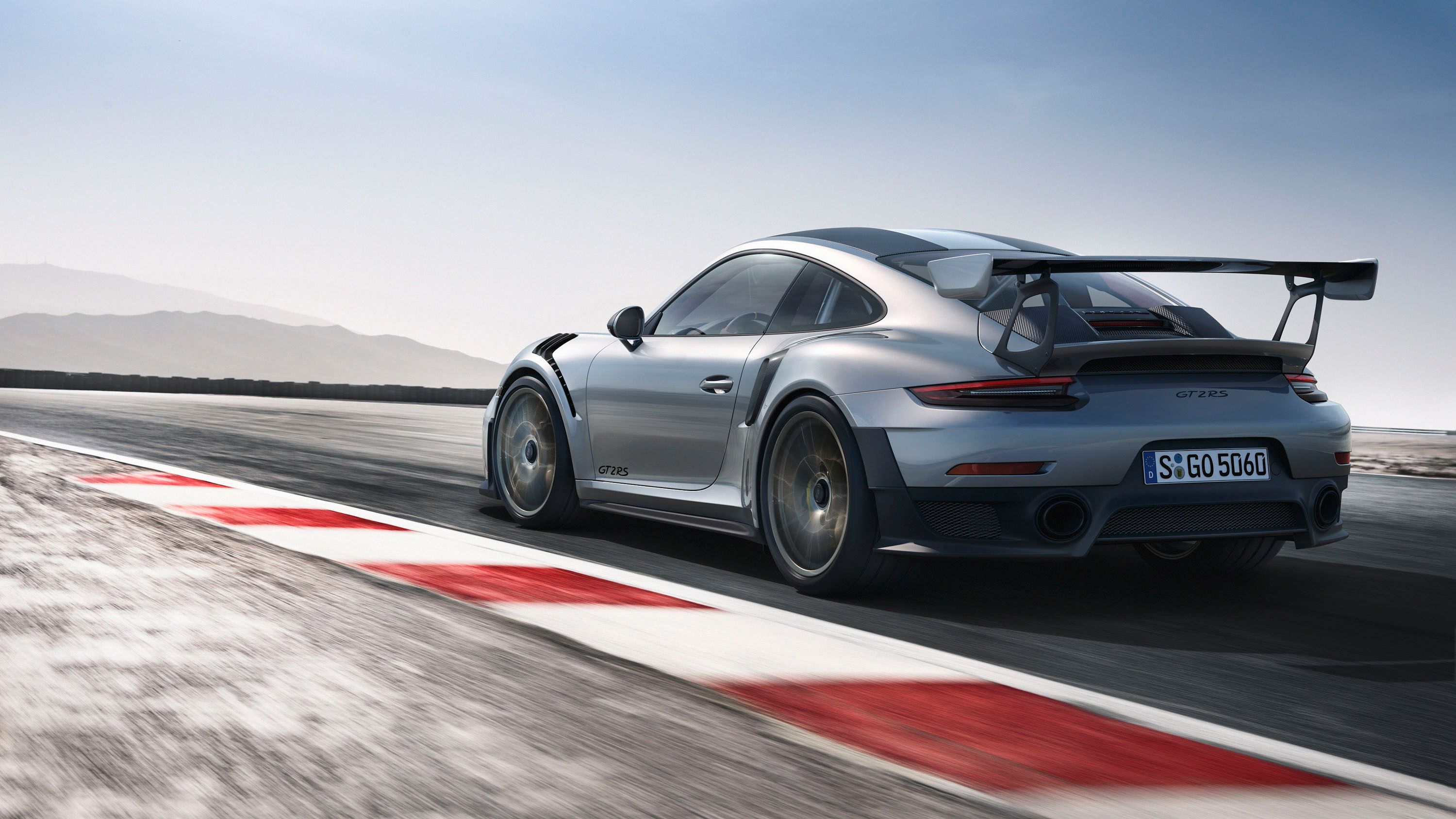Last year Porsche sold between 3,000 and 4,000 GT cars. These machines, developed and produced by Porsche's GT division, are as close as you can get to a race car while still being able to drive them on the street. Porsche's GT division, then, is a Mecca for proper gearheads and track enthusiasts who like the cars as they are (manual and burning fuel), and those who are not afraid to spend some serious money on their hobby. I am writing here about vehicles like the Porsche 911 GT3 or the 911 GT2.
With such a dedicated (and wealthy) community of enthusiastic customers, Porsche's GT division seems to be safe from the electrification that fell on the world of cars in recent years.
Andreas Preuninger, the head of Porsche's GT division acknowledged that electrification wouldn't come to Porsche GT cars soon. In fact, we can expect these vehicles to sport naturally aspirated engines and a manual transmission for as long as there is a proper demand. And it seems that the demand is stronger than ever.
Naturally Aspirated Engines Will Remain A Backbone Of Porsche GT Models For At Least A Decade
In his recent interview with Whichcar, Andreas Preuninger inferred that the manufacturers who plan to ditch naturally aspirated engines and manual transmissions are in the wrong. Porsche GT, a Porsche division responsible for the 911 GT3, 911 GT3 RS, 911 GT2, 911 GT2 RS, 718 Spyder, and Cayman GT4 seems to be quite safe from the doom of electrification and automatic transmissions.
“I think we have an advantage in the market over the competition because everybody has skipped and deleted the atmospheric engine and deleted even the manual gearbox. That’s a mistake! Because if you look at the take rates on the GT model side, in some markets half of the cars are manual, and everybody is longing for a car like this with a normally aspirated, high revving engine,” Preuninger acknowledged.
In fact, Porsche's GT division sells more cars with a manual in the U.S. than anywhere else.
“I think it’s very correct and the right thing to concentrate on three pillars – hybrid, complete electric and hardcore, typical sports car. Ferry Porsche once said the last car on earth would be a sports car and I’m absolutely sure he’s right.”
Obviously, at one point in the future, even the 911 will feature a hybrid propulsion setup, while part of Porsche's lineup already dances the hybrid dance on the market. A fully electric setup, on the other hand, will come in shape of the new Taycan and its Cross Turismo brother.
Porsche 911 GT3 specifications
|
Engine |
4.0-liter six-cylinder horizontally |
|---|---|
|
Horsepower |
500 HP @ 8,250 RPM |
|
Torque |
339 LB-FT |
|
0 to 60 mph |
3.8 seconds with manual (3.2 seconds with PDK) |
|
Top Speed |
198 mph manual (197 mph PDK) |
|
Driveline layout |
Rear-wheel drive |
|
Transmission |
6-speed manual/PDK |
|
Curb Weight |
3,116 Lbs |
Porsche's GT Division Can Make Cars With Higher Emissions Because They Don't Count as Porsche Models
Now, let me tell you a bit of story about Porsche's GT division.
There Won't Be an SUV From Porsche's GT Division Either
So, I can only imagine that the real Porsche is actually Porsche's GT division now. And this division, following Andreas Preuninger comments from 2017, will never work on an SUV or anything that does not have a direct link with the track.
“The credibility of the GT car is based on direct bloodline to the race cars,” Preuninger said during the interview with C/D in 2017. "To just use a badge on a Panamera or Cayenne to make it more attractive, for me, would not be credible. It would only be marketing, I don’t think that’s the right thing to do.”
Further Reading
Read our full speculative review on the 2020 Porsche 911 GT3.
Read our full review on the 2018 Porsche 911 GT2 RS.



